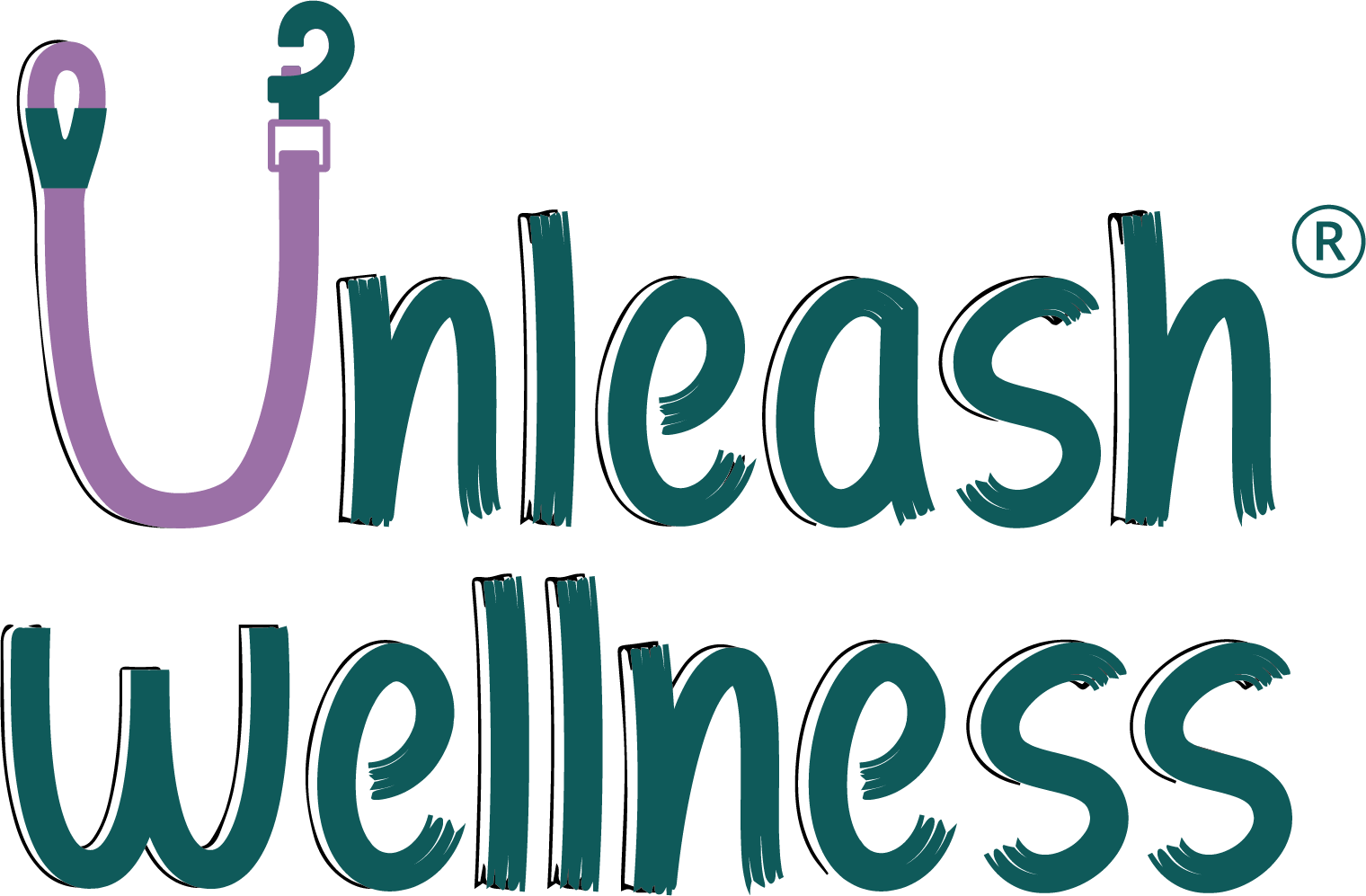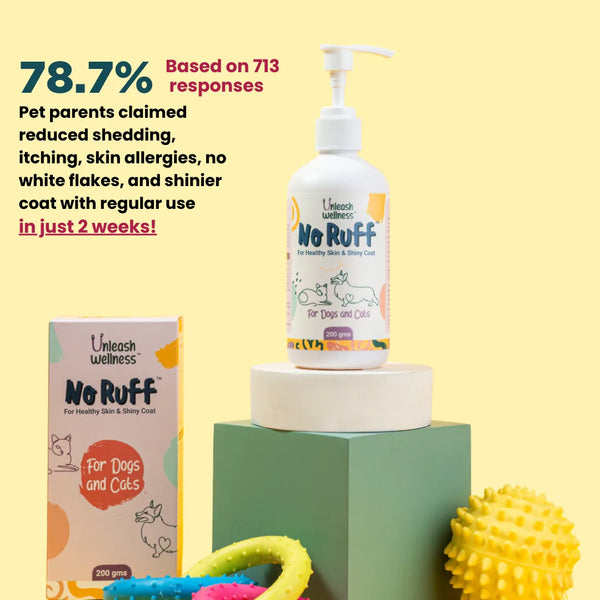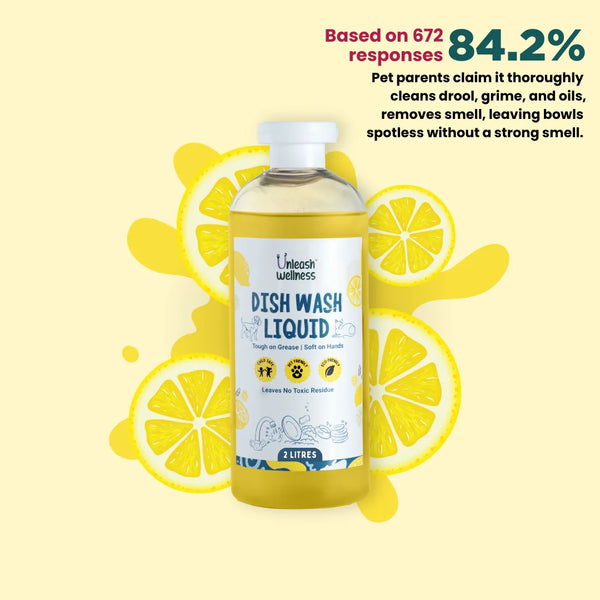Why Your Dog's Bad Breath Isn't Just Normal—And What You Can Do About It
If you've ever been greeted by your excited pup only to turn away from their breath, you're not alone. Bad breath in dogs is one of the most common complaints among pet parents across India. The good news? Most cases of dog halitosis can be managed effectively with simple, natural remedies you probably already have in your kitchen.
The short answer: Home remedies for dog bad breath work by targeting oral bacteria, reducing plaque buildup, and promoting better overall dental hygiene. Options like coconut oil, fresh parsley, and probiotic supplements can significantly improve your dog's breath when used consistently alongside proper teeth brushing.
According to PetMD, plaque and tartar buildup is identified as the leading cause of bad breath in dogs worldwide. While that unpleasant smell might seem like just an inconvenience, it often signals underlying oral health issues that deserve your attention. This year, more pet parents in India are turning to natural, vet-approved solutions that complement professional dental care without harsh chemicals or expensive procedures.
Understanding Why Dogs Develop Bad Breath in the First Place
Before jumping into solutions, it's crucial to understand what's actually causing that stinky breath. Most cases stem from poor oral hygiene, but the root causes vary more than you might think.
The primary culprit is bacterial growth in your dog's mouth. Just like humans, dogs accumulate food particles between their teeth after meals. When these particles aren't removed through brushing or natural cleaning mechanisms, bacteria feast on them and multiply rapidly. These bacteria produce sulfur compounds that create that distinctive foul odor.
Plaque and tartar buildup is identified as the leading cause of bad breath in dogs according to veterinary research worldwide in 2024. This sticky film starts forming on teeth within hours after eating. If left unchecked, it hardens into tartar, which provides an even better environment for odor-causing bacteria to thrive.
Diet plays a surprisingly significant role too. High-carbohydrate and processed diets can promote bacterial growth that worsens breath, as noted by vets in India and globally in 2023, according to The Farmer's Dog. Foods with poor nutritional profiles don't just affect your dog's overall health—they directly impact oral bacteria populations.
Pro Tip: Small breed dogs and brachycephalic breeds (like Pugs and Bulldogs) are especially prone to dental issues because of crowded teeth and mouth structure. These breeds often need more frequent oral care interventions.
However, not all bad breath is merely a dental hygiene issue. Veterinarians warn that persistent bad breath, especially when accompanied by drooling or eating difficulties, may signal dental disease, kidney issues, or diabetes, according to Bethel Pet Hospital. If your dog's breath suddenly worsens dramatically, has a sweet or fruity smell, or comes with other symptoms like lethargy or weight loss, schedule a vet visit immediately.
Six Proven Natural Remedies to Freshen Your Dog's Breath
Now let's explore the most effective home treatments that actually work. These natural remedies for dog breath have been recommended by veterinarians and validated through both scientific research and real-world results.
1. Coconut Oil for Antibacterial Action
Coconut oil contains lauric acid, which has antibacterial properties that help reduce oral bacteria and plaque, recommended by vets globally in 2023, according to Bethel Pet Hospital. You can add about half a teaspoon of organic, virgin coconut oil to your dog's food daily, or let them lick it directly from a spoon as a treat.
For more targeted application, try coconut oil pulling—apply a small amount to your finger and gently rub it along your dog's gums and teeth. This method allows the antibacterial compounds to work directly where they're needed most. Start with small amounts to ensure your dog tolerates it well, as too much coconut oil can cause digestive upset.
2. Fresh Herbs: Parsley and Mint as Natural Breath Fresheners
Parsley contains chlorophyll, which neutralizes odors and freshens breath naturally. Both parsley and mint are recognized as safe for dogs by US veterinary nutritionists in 2023, according to Pet Method DFW. Chop fresh parsley finely and sprinkle a small amount over your dog's regular meals—about a teaspoon for small dogs and up to a tablespoon for larger breeds.
Fresh mint leaves work similarly and many dogs actually enjoy the taste. You can freeze mint leaves in ice cubes for a refreshing summer treat that doubles as a breath freshener. Just avoid products containing essential oils or concentrated mint extracts, as these can be too strong for dogs.
3. Apple Cider Vinegar Water Rinse
Adding half a teaspoon of apple cider vinegar to your dog's water is cited to reduce oral bacteria and freshen breath, supported by US clinics in 2024, according to Anasazi Veterinary Clinic. The mild acidity helps balance pH levels in the mouth and creates an environment less friendly to odor-causing bacteria.
Start with just a few drops if your dog is sensitive to taste changes, then gradually increase to half a teaspoon per water bowl. Always use raw, unfiltered apple cider vinegar with "the mother" for maximum benefit. Never apply undiluted vinegar directly to your dog's mouth, as it's too acidic and can damage tooth enamel.
Key Insight: Some dogs won't drink water if the vinegar taste is too strong. If your pet refuses their water, reduce the amount or try the other remedies listed here instead.
4. Probiotics for Oral Health
Just as probiotics support gut health, they can also improve oral health by promoting beneficial bacteria that crowd out odor-causing strains. You can give your dog probiotic supplements specifically formulated for pets, or offer probiotic-rich foods like plain, unsweetened yogurt in small amounts.
For Indian pet parents, brands like Unleash Wellness offer scientifically formulated solutions—their Jolly Gut® Probiotic for Dogs is vet-approved and contains strains specifically selected to support not just digestive health but overall wellness, which includes oral hygiene. Consistent probiotic supplementation can create lasting improvements in breath quality over several weeks.
5. Crunchy Fruits and Vegetables
Crunchy treats such as carrots and celery act as natural abrasives to help clean teeth and freshen breath, widely recommended by pet nutritionists in 2023, according to The Honest Kitchen. The mechanical action of chewing these fibrous vegetables helps scrape away some plaque buildup while stimulating saliva production.
Apple slices (without seeds), cucumber chunks, and raw sweet potato pieces work wonderfully too. These healthy alternatives to commercial treats provide vitamins and minerals while supporting dental health. Just introduce new foods gradually and in appropriate portion sizes based on your dog's weight.
6. Regular Teeth Brushing with Dog-Safe Products
While technically not a "remedy" for existing bad breath, prevention through brushing deserves mention here. Veterinarians recommend daily teeth brushing with dog-safe toothpaste for best results; dog-specific toothpaste avoids toxic ingredients like xylitol, according to The Farmer's Dog.
Never use human toothpaste on dogs—the fluoride and xylitol commonly found in our toothpaste can be poisonous to pets. Instead, use enzymatic toothpastes designed for dogs, which come in flavors like chicken or peanut butter that dogs actually enjoy.
Building Safe and Effective Home Care Practices for Better Dog Oral Health
Understanding how to freshen dogs breath naturally requires more than just knowing which remedies work—it's about creating sustainable habits that fit into your daily routine. Let's look at practical implementation strategies that actually stick.
Start by establishing a realistic oral care schedule. If daily brushing feels overwhelming, begin with three times per week and gradually increase frequency. Use a soft-bristled dog toothbrush or a finger brush, which gives you better control and feels less invasive for your pet. The key is consistency over perfection.
Make teeth brushing a positive experience by associating it with rewards. Let your dog taste the toothpaste first, then gradually introduce the brush touching their lips and teeth over several sessions. Most dogs resist initially, but with patience and positive reinforcement, they learn to tolerate or even enjoy the routine.
Pro Tip: Brush your dog's teeth before their regular mealtime when they're most motivated by the flavored toothpaste and the anticipation of food. This timing makes the entire process smoother.
Beyond brushing, incorporate dental-friendly toys and treats into playtime. Rubber toys with textured surfaces or rope toys can help mechanically remove plaque during play. Look for toys specifically designed for dental health, which often have ridges and nubs that reach between teeth.
Consistency is vital: regular home care can decrease incidence of plaque and costly dental disease by up to 70%, notes multiple global pet wellness surveys in 2024, according to Wag Walking. This statistic highlights why establishing these habits now prevents much more serious—and expensive—problems down the road.
For pet parents in India dealing with multiple dogs or busy schedules, creating a weekly oral care rotation helps maintain consistency. Designate specific days for different aspects of care: Monday for brushing, Wednesday for dental chews, Friday for adding parsley to meals, and so on.
Prevention Strategies and Long-Term Oral Wellness for Your Dog
The most effective approach to dog bad breath home treatment is preventing it from developing in the first place. Let's explore dietary changes and lifestyle adjustments that support fresh breath for the long haul.
Diet plays a foundational role in oral health. Integrating fresh fruits and vegetables has been shown to improve oral hygiene and reduce bad breath in dogs, according to 2024 global veterinary advice from The Honest Kitchen. Consider adding small amounts of dog-safe produce to meals several times weekly.
Switching from dry kibble to foods with different textures can also help. While crunchy kibble provides some cleaning action, wet foods don't necessarily cause worse breath if paired with proper oral care. What matters most is nutritional quality—high-protein, low-carbohydrate diets typically support better oral health than grain-heavy options.
Water quality and availability deserve attention too. Fresh, clean water encourages drinking, which naturally rinses the mouth and dilutes bacteria. Some pet parents add a few drops of chlorophyll liquid to their dog's water as a natural breath freshener—this is safe and effective when used according to product directions.
Pay attention to warning signs that indicate when home remedies for dog bad breath aren't sufficient. If bad breath persists despite home care, or is paired with weight loss, lethargy, or oral pain, consult a veterinarian immediately, according to Bethel Pet Hospital. These symptoms could indicate dental disease, infections, or systemic health issues requiring professional intervention.
Key Insight: Professional dental cleanings under anesthesia remain important even with excellent home care. Most veterinarians recommend professional cleanings every 1-2 years for adult dogs, more frequently for senior pets or breeds prone to dental problems.
Building healthy habits early pays enormous dividends. Establishing a daily oral hygiene routine can extend a dog's expected healthy life by up to 2 years according to leading pet wellness surveys in 2023, reported by Healthy Smiles Pet. This remarkable statistic should motivate every pet parent to prioritize oral care alongside nutrition and exercise.
For comprehensive wellness support, consider supplements that address multiple health aspects simultaneously. Products like those from Unleash Wellness combine scientifically backed ingredients in vet-approved formulations. Their holistic approach recognizes that oral health connects to digestive health, immune function, and overall vitality.
Frequently Asked Questions About Natural Dog Breath Remedies
What is the fastest way to get rid of dog bad breath at home?
The fastest immediate solution is brushing your dog's teeth with enzymatic toothpaste, which starts working on odor-causing bacteria within minutes. For a quick breath freshener before guests arrive, try giving your dog a few fresh parsley leaves to chew or adding a drop of chlorophyll liquid to their water. These provide temporary relief while you implement longer-term solutions like dietary changes and consistent oral care routines.
Can apple cider vinegar really help with my dog's stinky breath?
Yes, when used correctly. Adding half a teaspoon of raw, unfiltered apple cider vinegar to your dog's water bowl helps reduce oral bacteria and balance mouth pH levels. The key is consistency—you'll notice gradual improvement over 2-3 weeks of daily use. Never apply undiluted vinegar directly to your dog's mouth or teeth, as the acidity can damage enamel.
Is coconut oil safe for dogs to eat every day?
Coconut oil is generally safe for daily use in appropriate amounts—about half a teaspoon for small dogs and up to one tablespoon for large breeds. Start with smaller quantities to avoid digestive upset, as too much fat can cause diarrhea. Choose organic, virgin coconut oil without additives. The antibacterial properties work best when used consistently as part of your oral care routine.
How much parsley can I safely give my dog for fresh breath?
Small amounts of fresh, flat-leaf parsley are safe and beneficial. Use about one teaspoon of finely chopped parsley for dogs under 10 kg, and up to one tablespoon for larger dogs. Sprinkle it over their regular meals 3-4 times weekly. Avoid curly parsley in large quantities and never use spring parsley, which can be toxic to dogs.
When should I stop using home remedies and take my dog to the vet?
If bad breath persists after 3-4 weeks of consistent home care, worsens suddenly, or accompanies other symptoms like difficulty eating, excessive drooling, bleeding gums, weight loss, or lethargy, schedule a veterinary appointment immediately. These signs may indicate dental disease, kidney problems, diabetes, or other serious health conditions requiring professional diagnosis and treatment.
Are probiotics better than brushing for dog oral health?
Probiotics and brushing serve different but complementary purposes. Brushing mechanically removes plaque and food particles, while probiotics support beneficial bacterial populations that discourage odor-causing strains. The most effective approach combines both methods—regular brushing for immediate plaque removal plus probiotic supplementation for long-term oral and digestive health support.
Do dental chews actually work or are they just marketing?
Quality dental chews can be effective as part of a comprehensive oral care strategy, but they shouldn't replace regular brushing. Look for products with the Veterinary Oral Health Council (VOHC) seal, which indicates testing for plaque and tartar reduction. Chews work through mechanical action and sometimes include ingredients that reduce bacteria. However, they're supplements to brushing, not substitutes.
Final Thoughts: Creating a Fresh-Breath Future for Your Dog
Addressing your dog's bad breath naturally doesn't require expensive products or complicated procedures. The most effective home remedies for dog bad breath—coconut oil, fresh herbs, apple cider vinegar, crunchy vegetables, and proper brushing—are accessible to every pet parent in India this year.
The key to success lies in consistency and combining multiple approaches. Start with one or two remedies that fit easily into your routine, then add others as the habits become established. Remember that oral care connects directly to your dog's overall health and longevity—those extra two years of healthy life are worth a few minutes of daily care.
For pet parents seeking scientifically formulated wellness support, products from Unleash Wellness offer vet-approved solutions that complement your natural care routine. Their commitment to preservative-free, allergen-free formulations made in India means you're giving your pet safe, effective support backed by science.
Take action today by choosing one natural remedy to implement this week. Whether it's adding parsley to meals, introducing coconut oil, or finally starting that brushing routine you've been postponing, your dog's fresher breath and healthier mouth will be worth the effort. Your future self—and your dog—will thank you for prioritizing oral wellness now rather than dealing with expensive dental disease later.
Ready to support your dog's overall wellness from the inside out? Explore the complete range of vet-approved supplements at Unleash Wellness and discover how holistic care creates healthier, happier pets.







